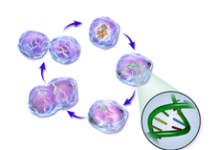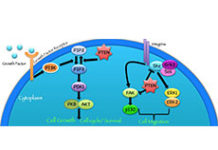Making Genetic Testing Accessible (MAGENTA) is the first large randomised clinical study evaluating the effect of individualised pretest and posttest counselling for cancer risk assessment while providing electronic enrolment, remote testing, and counselling. It was a 4-arm, randomised non-inferiority study testing the effects of individualised pretest and/or posttest genetic counselling on participant distress 3 months posttest.
The findings support an alternative model for genetic testing delivery with pretest information provided electronically, providing results electronically to patients with negative genetic testing results, including those with variants of uncertain significance, and posttest counselling for those with pathogenic variants (PVs) and on demand for those without PVs. The findings are published by Dr. Elizabeth Swisher of the Department of Obstetrics & Gynecology, University of Washington in Seattle, WA, US, and colleagues on 14 September 2023 in the JAMA Oncology.
The authors wrote in the background that low population awareness contributes to poor use of genetic testing for cancer risk. Other barriers cluster around the multiple steps required to access genetic testing and services. The traditional clinical paradigm for genetic testing has required an in-person visit with a trained professional for pretest counselling and a second to receive results with posttest counselling. There is uneven use of genetic testing based on geographic location, race and ethnicity, income, and insurance status. The question of whether all patients need pretest and/or posttest individualised genetic counselling is critical, as a shortage of genetic counsellors has been identified as a major barrier to testing.
Several investigators have reported the acceptability and equivalency of telephone-delivered genetic counselling compared with in person, providing an alternative counselling delivery option. In the MAGENTA study, the investigators assessed whether not mandating individualised genetic counselling causes psychological harm. They designed a 4-armed non-inferiority study to test whether eliminating pretest and/or posttest counselling for home-delivered cancer risk assessment is noninferior regarding participant distress at 3 months after receipt of results in comparison with standard mandatory pretest and posttest counselling.
Participants were recruited via social and traditional media, and enrolment occurred between 27 April 2017 and 29 September 2020. Participants were women aged 30 years or older, English-speaking, US residents, and had access to the internet and a healthcare professional. Previous cancer genetic testing or counselling was exclusionary. In the family history cohort, participants had a personal or family history of breast or ovarian cancer. In the familial PV cohort, participants reported 1 biological relative with a PV in an actionable cancer susceptibility gene. Data analysis was performed between 13 December 2020 and 31 May 2023.
Participants completed baseline questionnaires, watched an educational video, and were randomised to 1 of 4 arms: the control arm with pretest and/or posttest genetic counselling, or 1 of 3 study arms without pretest and posttest counselling. Genetic counselling was provided by phone appointments and testing was done using home-delivered saliva kits. The primary outcome was participant distress measured by the Impact of Event Scale 3 months after receiving the results. Secondary outcomes included completion of testing, anxiety, depression, and decisional regret.
A total of 3839 women with median age of 44 years (range, 22-91 years), most of whom were non-Hispanic White and college educated, were randomised, 3125 in the family history and 714 in the familial PV cohorts. In the primary analysis in the family history cohort, all experimental arms were noninferior for distress at 3 months. There were no statistically significant differences in anxiety, depression, or decisional regret at 3 months. The highest completion rates were seen in the 2 arms without pretest counselling.
The authors wrote that they plan to follow-up the impact on important health behaviours, such as cancer screening and family communication, which are frequent topics emphasized during genetic counselling. Telehealth delivery of genetic counselling became standard for many centres during the COVID-19 pandemic. Such alternative model provides more flexibility for patients and reduce costs. In developing models for population testing, the authors propose a patient-centric genetic testing model in which patients are provided the option whether to receive pretest and/or posttest genetic counselling as well as the option for remote testing.
The study was funded by Stand Up To Cancer-OCRA-NOCC Ovarian Cancer Dream Team Award.
Reference
Swisher EM, Rayes N, Bowen D, et al. Remotely Delivered Cancer Genetic Testing in the Making Genetic Testing Accessible (MAGENTA) Trial A Randomized Clinical Trial. JAMA Oncology; Published online 14 September 2023. doi:10.1001/jamaoncol.2023.3748







